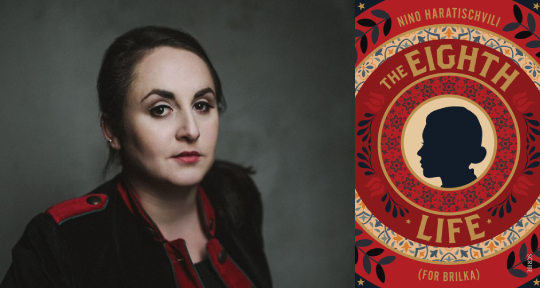The Eighth Life, by Nino Haratischwili, translated from the German by Charlotte Collins and Ruth Martin, Scribe, 2019
Sometimes I wonder how many people harbor a secret desire to write a book about their family’s entire history. I have certainly met enough women in my life who have expressed this explicitly, especially the stories shared by their mothers and grandmothers—the implication being that we don’t get enough of these stories in literature or biographies. It is perhaps for this reason that reading Nino Haratischwili’s The Eighth Life, translated by Charlotte Collins and Ruth Martin, feels so familiar, almost like a wish fulfilled. Because with all its exciting intricacies and the moving depth, The Eighth Life is not just the story of the trials and tribulations of one Georgian family over the red century; it is first and foremost a tribute that Niza, the book’s narrator, pays to her matriarchal line and to her family’s youngest member, her niece Brilka.
The Eighth Life has deservedly been compared to Tolstoy’s War & Peace, most recently translated by Richard Pevear and Larissa Volokhonsky. Just like its epic predecessor, The Eighth Life features a dizzying amount of main and secondary characters whose lives are explored in depth and trailed over several decades, from the early 1900s to our present. The story starts with Niza’s great-grandmother, Stasia, the daughter of a famed Georgian chocolate-maker, who almost impetuously betroths Simon Jashi, a military man. Throughout the book, we follow Stasia, her sister Christina, and their granddaughters as they shape and are shaped by one hundred years of Georgian and USSR history. Like Tolstoy, Haratischwili is not afraid to go into the details of the major historical events that signpost the twentieth century, providing a guideline even for those that are not well versed in Soviet history. And just like Tolstoy, through the voice of her perceptive narrator, she is ready to remind us of the hypocrisy and absurd repetitions that history often entails. READ MORE…

